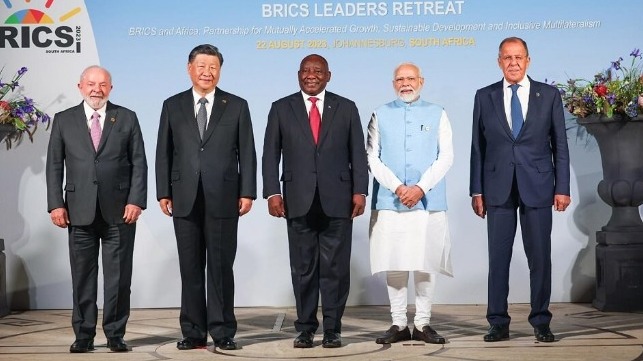What the BRICS Expansion Means to Shipping

The major news last week was the BRICS (Brazil, Russia, India, China and South Africa) Summit in Johannesburg. In a world where global governance structures are evolving, BRICS’ significance as a potential dominant economic bloc has greatly improved. The sentiment was better expounded in an address to the BRICS Summit by the UN Secretary General Antonio Guterres, who said today’s governance structures reflect yesterday’s world.
“They were largely created in the aftermath of World War II when many African countries were still ruled by colonial powers and were not even at the table,” said Guterres.
Indeed, BRICS envisions itself as a united front to emancipate the global south from a western-led global order. While this ambition is debatable, the expanded BRICS with the invitation of six new members introduces an interesting trade dynamic. The new members include Argentina, Egypt, Ethiopia, Iran, Saudi Arabia and the UAE, all of which are top emerging economies in the world, not to mention their immense geostrategic advantage.
BRICS is still arguably in its formative phases and it would be early to predict its impact to the global trade and politics. However, with its 11 member countries controlling a combined population of 3.7 billion people and nearly 70 percent of global oil production, a re-organization of the global trade patterns could be in the offing.
Most importantly, BRICS pitch for a multipolar world could re-invent globalized industries, such as shipping. For instance, economic sanctions by the West against Russia and Iran have created a parallel oil market, as India and China increased oil imports from the two countries.
This has created what is known as “dark fleet,” comprising of hundreds of old tankers with murky ownership and shady insurers, playing the role of moving sanctioned Russian and Iranian oil. An empowered BRICS means Russia and Iran could more easily evade Western economic sanctions.
In the past decade, China has also sought to influence major decisions undertaken by key UN bodies. A case in point is a diplomatic campaign that China conducted ahead of the International Maritime Organization’s MEPC 80 meeting in July. According to a report by the Financial Times, China circulated a diplomatic note urging developing nations to reject a carbon tax.
Incidentally, Argentina, Brazil and South Africa (all BRICS member countries now) were aligned with China’s position. It remains to be seen the role BRICS platform will play, especially in influencing the UN consensus approach to decisionmaking. It would be safe to argue that the BRICS’ cooperation and goodwill is needed to fast-track the green shipping agenda before the IMO.
Meanwhile, some analysts are skeptical that an expanded BRICS could drive real global change. They predict some divisions could arise on how to effectively manage economic shocks affecting emerging economies of most of the BRICS member nations.

that matters most
Get the latest maritime news delivered to your inbox daily.
“Will BRICS be an anti-West club? Possibly in rhetoric, but unlikely in substance. There are enough countries in here that still see benefits from good relations with the West. Pragmatism will temper any ideological impulses, but do expect Beijing and Moscow to grandstand,” argues Gokul Sahni, geopolitics and geoeconomics researcher based in Singapore.
If anything, recent trade alignments among BRICS member nations show the platform could be an economic front to be reckoned with. For instance, India and China remained top buyers of Russian oil even after it was sanctioned by the West.
